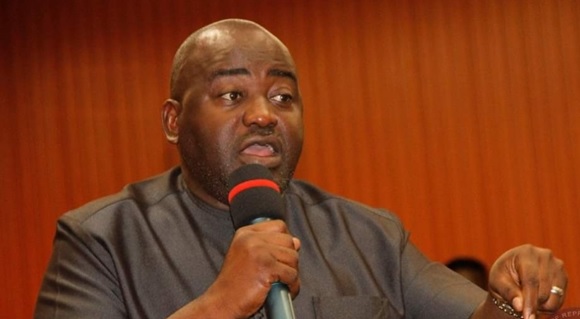MONROVIA, LIBERIA – Cllr. Charlyne M. Brumskine, who served as Alexander Cummings’ vice-presidential candidate during the 2023 elections under the now-dissolved Collaborating Political Parties (CPP), has shared her views on the heated debate surrounding Dr. Layli Maparyan’s appointment as President of the University of Liberia (UL). The decision by President Joseph Nyuma Boakai, announced on January 4, 2025, has drawn criticism from many Liberians, prompting Brumskine to address the concerns in an open letter titled “A Letter to the Young Revolutionaries of the University of Liberia,” published on January 6.
In her letter, Brumskine acknowledged the frustration voiced by UL’s student body and young activists. She recognized that their objections to Dr. Maparyan’s appointment were valid and rooted in genuine concerns. Yet, she urged them to consider a different perspective—one that challenges conventional thinking and opens the door to new possibilities for growth and transformation.
Brumskine suggested that Liberia’s younger generation should use this opportunity to lead a movement toward progress by embracing change rather than resisting it. She described the appointment as a chance to break away from outdated traditions and welcome innovative ideas, even if they come from unfamiliar sources. Brumskine encouraged the students to view Dr. Maparyan’s leadership as an opportunity to revolutionize the university and the nation’s educational system.
She pointed out that while Liberia has many capable and qualified professionals, the nation could benefit from diverse perspectives. Brumskine stressed the value of learning from individuals with different experiences and backgrounds, suggesting that Dr. Maparyan’s international academic expertise could help modernize the university’s operations and curriculum. This, she argued, might open doors to opportunities that many young Liberians have long sought abroad.
Drawing from her own encounters, Brumskine reflected on the numerous appeals she receives from young Liberians seeking financial assistance to study overseas. She urged students to recognize the significance of having someone with global academic credentials bring those opportunities to their doorstep. Instead of opposing Dr. Maparyan’s appointment, she called on students to envision the potential for transformation her leadership might bring to UL.
Addressing concerns about Dr. Maparyan’s limited experience in managing an institution of UL’s scale, Brumskine acknowledged the validity of such reservations. However, she reminded the students that transformative movements often begin with individuals who may lack traditional qualifications but possess a vision and the determination to enact meaningful change.
Brumskine also challenged the students to reexamine their definitions of what it means to be “Liberian.” She urged them to think critically about the values and standards they use to assess leadership, cautioning against clinging to familiar yet ineffective norms. She argued that the nation’s progress depends on adopting a more inclusive and flexible approach to governance and development.
In a passionate appeal, Brumskine encouraged the youth to overcome their fear of the unknown and embrace innovative solutions to longstanding challenges. She emphasized the importance of boldness and creativity in shaping a brighter future, urging students to let go of outdated ideologies and embrace fresh ideas.
Concluding her letter, Brumskine expressed hope that if Dr. Maparyan’s tenure fails, it should not be due to resistance from the university’s students. Instead, she wished for the appointment to be judged on its merits, regardless of its outcome. She reminded the youth that the future of Liberia rests in their hands, emphasizing that history belongs to the older generation, while the responsibility to build a better tomorrow lies with them.
Meanwhile, some Liberian scholars have also shared their perspectives, asserting that as the debate surrounding Dr. Maparyan’s appointment unfolds, Brumskine’s letter serves as a significant call for Liberians—particularly the youth—to rethink the concepts of progress and revolution within the nation. Social media reactions highlight that Brumskine’s message is a poignant reminder of how embracing change, despite its challenges, can lead to meaningful transformation and growth.







